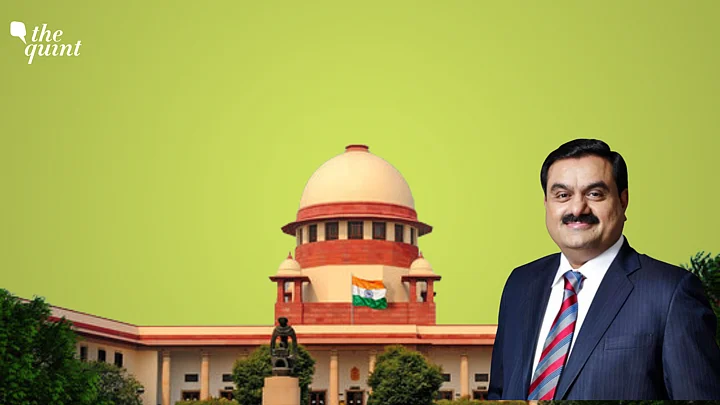A Supreme Court-appointed expert panel which has been looking into the Adani-Hindenburg row, has said that prima facie it would not be possible to conclude that there have been regulatory lapses by SEBI in the case.
"Prima facie it would not be possible for the committee to conclude there has been a regulatory failure around the allegation of price manipulation," the report said on Friday, 19 May, according to Bar and Bench.
TLDR: In its report, Hindenburg Research had claimed that the Adani Group had ties to offshore shell companies for alleged money laundering and stock market manipulation related purposes.
When the case reached the top court, it asked SEBI to investigate:
If there has been a violation of Rule 19A (related to maintenance of minimum public shareholding) of the Securities Contract Regulation Rules
If there has been a failure to disclose transactions with related parties and other relevant information which concerns related parties
If there was any illegal manipulation of stock price
The apex court committe had then set up an expert committee, headed by retired Supreme Court Justice AM Sapre, to review the regulatory mechanism.
BUT What Else Does The Report Say? Key Points
According to The Indian Express, the panel concluded:
"No pattern of artificial trading or “wash trades” among the same parties multiple times was found"
"There was no coherent pattern of abusive trading"
SEBI had suspected 13 overseas entities to have links to Adani group promoters but details of beneficial owners were disclosed in compliance with Prevention of Money Laundering Rules (PMLA Rules).
So, the report said that as of now SEBI has not been able to make out a case and that is the prima facie position
On transactions with related parties, the committee said that SEBI had also identified 13 specific transactions where it was investigating the underlying transactions
What Was The Committee Tasked With?
The tasks before the committee included:
Give an overall assessment of the situation, which includes relevant casual factors that have influenced the recent volatility in the securities market
Suggest measures to improve investor awareness
Probe whether there was a regulatory framework for dealing with alleged violations of law (with regard to the securities market)
Suggest measures to fortify the statutory and regulatory frameworks
Besides Justice Sapre, the 6-member committee included:
OP Bhatt: Independent director of the Tata Consultancy Services, Independent director on the boards of a variety of multinationals, and former chairman of State Bank of India (SBI)
Justice JP Devadhar: Retired Bombay High Court judge and former presiding officer of the Securities Appellate Tribunal
KV Kamat: Former chief of the New Development Bank of BRICS countries, as well as former chairman of Infosys Limited
Nandan Nilekani: Co-founder and chairman of Infosys Technologies Limited
Somasekhar Sundaresan: An advocate specialising in commercial law. On 18 January, the Supreme Cour collegium reiterated its recommendation for his elevation as a Judge of the Bombay High Court. Read more about Sundaresan here.
(With inputs from Bar and Bench and The Indian Express)
(At The Quint, we question everything. Play an active role in shaping our journalism by becoming a member today.)
